Perspective Plan (Vision 2030)
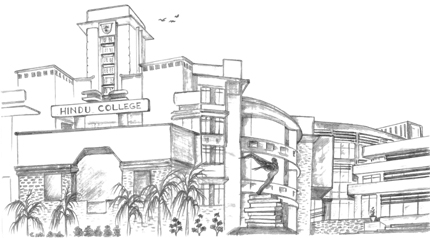
Introduction
Poised at the threshold of its 125th year, Hindu College, which started with thirteen students and 6 teachers in 1899, has now grown into one of the most coveted higher education institutions in the country with more than 4,000 students and 200 teachers, offering undergraduate courses in 19 disciplines and post-graduate programmes in 14 disciplines in humanities, science, and commerce. Today, Hindu College holds a distinguished position amongst the various educational institutions in our country. The College secures top rankings in India Today College Rankings and is placed 2nd in NIRF.
The institution is driven by a quest for excellence articulated in the vision, mission, goals, and core values. The Internal Quality Assurance Cell (IQAC) leads the quality assurance and quality enhancement of educational processes at the institution. The IQAC presents the Institutional Perspective Plan (Vision 2030). The plan began more than a decade ago and has been further updated in accordance with NEP 2020. The major thrust areas include curriculum development, research industry-academia collaborations, student capability enhancement, infrastructural upliftment, sustainable green initiatives, and quality assurance and enhancement for the holistic development of the institution.
Perspective Plan Committee
- Principal and chairman
- Vice Principal and Vice Chairman
- Coordinator, IQAC
- Nominated Heads of Department
- Nominated Faculty Members
- Librarian
Perspective Plan for Research aligned with the mandates of NEP 2020
The National Education Policy (NEP) 2020 envisages a robust research ecosystem and lays the framework for promoting research and innovation. Development of a fully functional Research Centre in the College is a project that was envisioned around 2019 when the construction of a four-storeyed building began. Donors like Relaxo helped in the development of the civil structure while NBCC played a crucial role in the strengthening of the labs. This has been dubbed as the state-of-the-art Research Centre sprawling
38, 000 sq feet area, having 20 high-end and well-equipped science research labs that will further the work in fields of material science, nanomaterials, social sciences, environmental sciences, green chemistry, Himalayan Studies, etc. In addition, special adjunct faculty guest rooms and an auditorium with a seating capacity of 250 have been provided. The labs in the Research Centre are equipped with sophisticated instruments such as FTIR, EDXRF, GC, GC-MS, tunable light source, rotary evaporators, UV-Vis Spectrophotometer, CO2/O2 Incubator, stability chamber, environment chamber, spin coater, etc.
The institute has the Green Chemistry Network Centre which promotes green chemistry in India by planning a number of national and international workshops, conferences, and seminars and, most importantly, by conducting high-quality research in green chemistry, catalysis, and nanotechnology—the three fields that have produced Nobel Prize winners in recent years. The research has made a global impact and received recognition as citations and articles published in prestigious journals including Chemical Society Reviews, Green Chemistry, Materials Horizons, Dalton Transactions, Coordination Chemistry Reviews, etc.
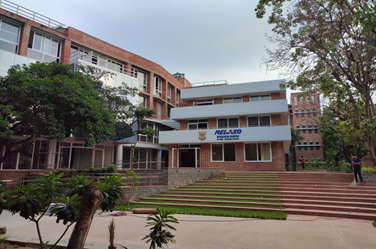
State of Art Research Centre, Hindu College, University of Delhi
As per Vision 2030, the following perspective plans have been proposed:
- Increased Academia-academia/industry Collaborations with recognized global institutes and leading industries
- More Start-up and entrepreneurship cells
- Networking with global green chemistry networks across the world
- Interdisciplinary research to accomplish the 2030 Agenda of Sustainable Development Goals (SDGs)
- Setting up sophisticated analytical facilities that meet the demands of various industries and academic institutes
- Increased research grants for aspiring faculty members and students
- Increased internships, apprenticeships, projects and community outreach programmes
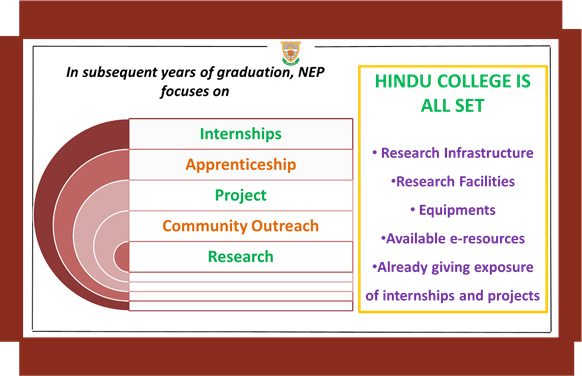
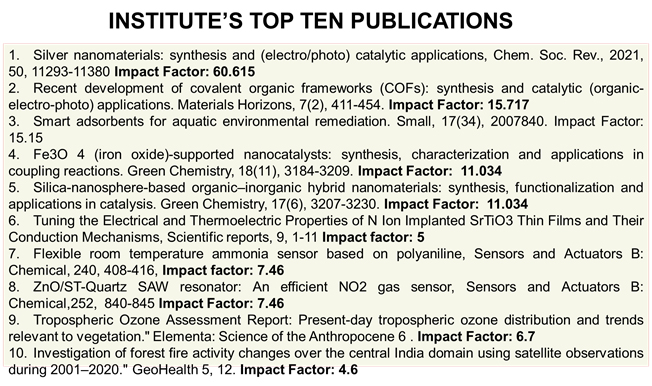
Perspective Plan for Curriculum Development
As per Vision 2030, the following plans have been proposed for the curriculum development:
- Increased focus on experiential learning employing the latest innovative tools and techniques
- Introduction of value-added courses/add-on courses by all departments to impart skills and knowledge beyond the curriculum
- Increased investment in resources for the development of customized software packages for Enterprise Resource Planning (ERP)
- Introduction of innovative programmes at the undergraduate as well as the post-graduate level to cater to the current industrial and societal needs
- Integration of skill development in all the programmes and courses to increase employability and nurture entrepreneurship skills
- Special attention would be paid to integrating various components of Sustainable Development Goals (SDGs) in the curriculum of the various programmes.
- A well-structured outcome-based curriculum would be followed in accordance with the UGC guidelines.
- Development of a learning management platform for the creation of open educational resources.
- Library expansion would provide easy access to digital knowledge resources through Delhi University.
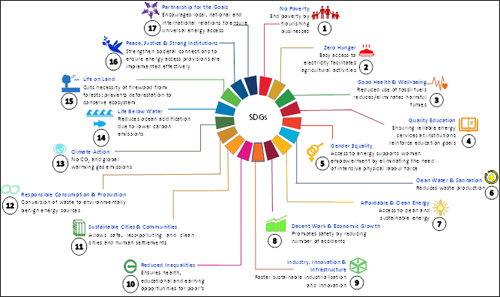
Curriculum development in accordance with the 2030 Agenda of Sustainable Development Goals (SDGs)
Perspective Plan for Student Capability Enhancement
The following plans have been proposed for student capability enhancement:
- Increased emphasis on fostering an ecosystem that will help in the development of the entrepreneurship skills of the students.
- Full support will be extended to the students for establishing start-ups on campus aided by an exclusive incubation centre with mentoring by leading entrepreneurs.
- Increased opportunities will be provided to the students to train them for various competitive examinations.
- Experiential learning will be given more emphasis in all the courses.
- The institute has an innovation cell and skill centre to help students enhance their creative skills and innovation. Due efforts will be required to improve the outputs of these centres.
- Interdisciplinary learning will be promoted.
Perspective Plan for Faculty and Staff Development
The following perspective plans in Vision 2030 have been proposed for overall faculty and staff development:
- While making appointments/recruitments, the prime emphasis would be placed on research component, in addition to the academic merits.
- Enhanced support will be provided to faculty members interested in seeking additional qualifications as well as the research and consultancy.
- Faculty members interested in research and consultancy opportunities as well as other credentials will receive full support.
- The institute shall take due interest in informing its faculty members about the various national and international fellowships available.
- The institute shall provide increased benefits to those faculty members who have done outstanding work in the area of research.
E-Waste Skill Centre at Hindu College
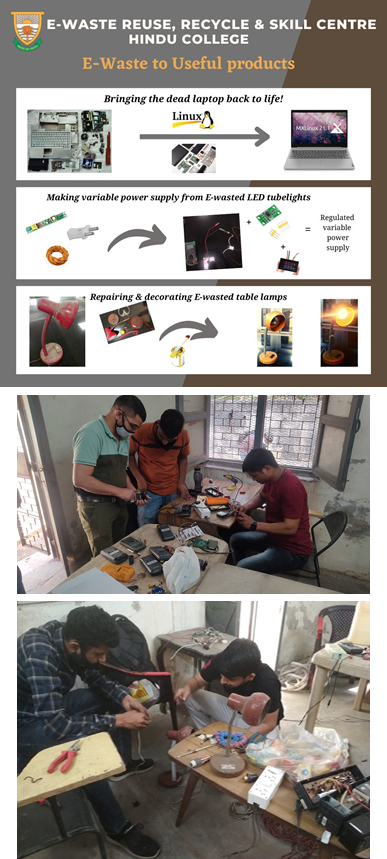
Collaborations
The institute had directed diligent efforts towards strengthening collaborative relationships with various academic as well as industrial institutes. The following research collaborative initiatives have been undertaken:
- Ongoing research projects with leading Industries such as Ultra International Ltd, Reckitt Benckiser, Shri Ram Institute (SRI), Translational Research & Innovations Pvt. Ltd (TRI), etc.
- DST-funded projects have been awarded to the College which are running smoothly.
- The College is offering several value-added courses in collaboration with IIT Delhi. These courses have theoretical as well as research components. The undergraduates are being trained, and are working on research projects on green energy (particularly, recovery of valuables from spent/waste lithium batteries using green techniques) and hydrogels (synthesis and insights into structure through spectroscopy).
- Hindu College has entered into a research collaboration with TRI which is a high-potential start-up company, with authorized share capital of around Rs 1,000,000 focusing on research and experimental development on Natural Sciences and Engineering (NSE). The areas of technology co-development include rare earth elements extraction from coal dump sites and characterization of biodegradable polymers and natural colours. These projects are running successfully.

As part of its Vision 2030 strategy, the institute intends to establish and strengthen partnerships with reputable national and international institutions for faculty development, research, internships, and placements that will benefit students.
Additionally, the institute wants to look at other possibilities for international student and faculty exchange.
Extension Services
The institute has the following extension services perspective plans:
- Environmental initiatives (in accordance with Green Policy)
- Sustainability initiatives
- Scholarships
- Support for the differently abled
- Community outreach programmes
- Skill development programmes
Quality Assurance and Quality Enhancement (IQAC)
VISION
To make quality the defining element of higher education in India through a combination of self and external quality evaluation, promotion, and sustenance initiatives.
MISSION
- To improve the academic environment at higher education institutions by fostering high standards for instruction, learning, and research
- To encourage self-evaluation, accountability, autonomy and innovations in higher education
- To collaborate with other stakeholders of higher education for quality evaluation, promotion and sustenance.
- Commitment to quality has been a maxim of Hindu College since its very inception. The College has recently constituted the IQAC which commenced operations from July 2015 and is now the designated nodal agency for ensuring and providing quality assurances in academics and College administration. The IQAC has a diverse composition of alumni, parents, non-teaching staff, external experts and students.
Objectives of IQAC
The cell is envisaged to function as the hub for:
- Developing and disseminating standards of excellence in pedagogy and institution building.
- Providing a systematized and durable mechanism for conscious and continuing self-evaluation, introspection, and improvement in the overall performance of the College.
- Conceptualizing, planning and implementing quality initiatives and regularly evaluating the same.
- Providing a forum for students and alumni to participate in strengthening the academic standards of the institution. The cell shall receive and evaluate feedback from students, parents, alumni, and other stakeholders as well as the society at large on an ongoing basis, and strive to make quality consciousness an institutional paradigm.
Infrastructural Development
The College has made rapid strides in developing and upgrading its infrastructure in the last few years. The College has added a new Centre for Interdisciplinary Research, a state-of-the-art auditorium, a new academic block covering about 58,000 sq. ft. which includes science labs, lecture theatres and seminar rooms, and a new amphitheatre named Utsav, built in the Romanesque style, to its list of world-class facilities.
As per Vision 2030, the institute has plans to establish a state-of-art library, new faculty blocks, and more skill centres. Infrastructural upliftment aligned with modern requirements is an important element of Vision 2030.